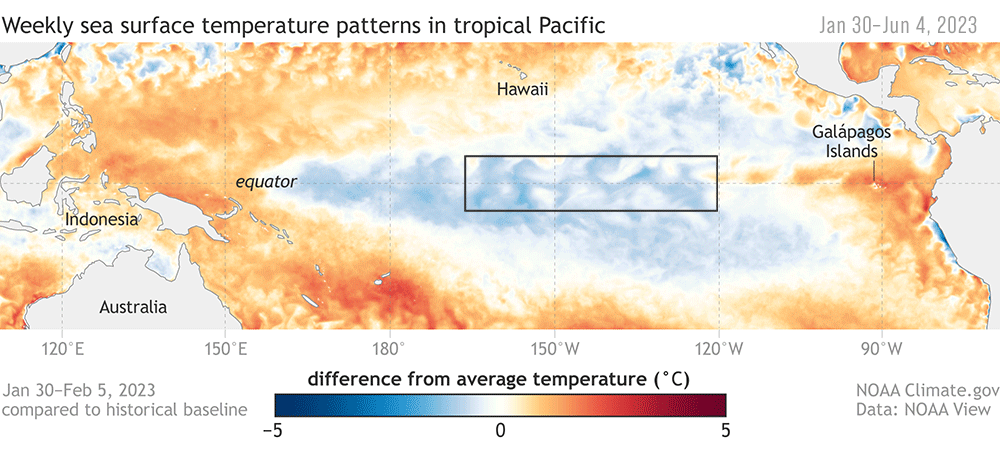NOAA
Climate Scientists Project 2024 Will Be the Hottest Year on Record—and the First to Pass 1.5 Degrees Celsius of Warming
After November 2024 was the second warmest November in the books, experts say the year is "effectively certain" to break the heat record set by 2023
A New Marine Sanctuary Off California Will Be Co-Managed by Indigenous Peoples
NOAA designated the Chumash Heritage National Marine Sanctuary this month, following a decade of advocacy by supporters. The protected site will be finalized after a 45-day review period
Mysterious Craters Discovered on the Bottom of Lake Michigan Could Hold Lessons About Early Life on Earth
Scientists aren't sure how the circular indentations some 450 feet below the surface formed, but they hope to investigate further
You Could See Dazzling Auroras Tonight as 'Strong' Solar Storm Hits. Here's What to Know
Predicted to bring the northern lights as far south as parts of California and Alabama, a large coronal mass ejection from the sun collided with our planet Thursday morning
Mysterious 'Mechanical-Sounding' Noise Near the Mariana Trench May Now Have an Explanation
An acoustic survey in 2018 and new analysis with A.I. suggest the sounds are vocalizations from the elusive Bryde’s whale
The World's Fourth Mass Coral Bleaching Event Is Underway—and It Could Become the Worst One Yet
The impacted reefs represent 54 percent of the planet's total, and that figure is currently increasing by 1 percent each week, NOAA scientists say
This September Was the Earth’s Hottest on Record
The scorching month follows the hottest June, July and August in recorded human history
What Is This Mysterious Golden Orb Scientists Found on the Ocean Floor?
After bringing the four-inch-diameter blob to the surface, researchers still only know that it is “biological in origin”
Hurricane Idalia Hits Florida Amid Projected 'Above-Normal' Storm Season
The hurricane is the strongest to strike the state’s Big Bend area in about 125 years
Earth Faces Hottest Day Ever Recorded—Three Days in a Row
Researchers attribute the sweltering heat to a combination of human-caused climate change and El Niño, which has a global warming effect
El Niño Has Arrived
The natural climate pattern usually increases global temperatures and could lead to record-breaking heat
See the Breathtaking Ocean Life Found at Deep-Sea Vents
An international team of scientists discovered new hydrothermal vents along the Mid-Atlantic Ridge releasing mineral-rich water hot enough to melt lead
Widespread Auroras That Lit Skies This Week Are Getting More Common
The stunning colors that dazzled viewers on Sunday will appear again as the sun's activity builds to a peak in 2025
These Sea Stars Are Literally Wasting Away—but They May Soon Receive Protection
Sunflower sea stars have been recommended for Endangered Species Act protection as disease leads them to “disintegrate into gooey masses”
Carbon Dioxide Levels Now Higher Than Ever in Human History
Levels have risen more than 50 percent in the last two centuries alone
NOAA Predicts Another Busy Hurricane Season This Year
2022 will likely be the seventh consecutive year of above-average hurricane activity
The West Coast Should Brace for Spring Megadrought, NOAA Warns
More than half of the United States is likely to struggle with limited water supply and increased risk of wildfires in the coming months
Sea Levels Will Rise One Foot Along U.S. Coasts by 2050
Some regions could see as much as seven feet of sea level rise by the end of the century if greenhouse gas emissions aren't curbed
Intense Lightning 'Megaflashes' Stretched Almost 500 Miles Across Three U.S. States
The bolts, which occurred in 2020, broke records for distance and duration
Beavers Are Reshaping the Arctic Tundra. Here's Why Scientists Are Concerned
Ponds made by the large rodents are causing permafrost to thaw, releasing methane and carbon dioxide once stored in the frozen Earth
Page 1 of 2
:focal(2500x1679:2501x1680)/https://tf-cmsv2-smithsonianmag-media.s3.amazonaws.com/filer_public/c9/85/c98565cd-4dc6-4994-8d52-ec05d0c29dcc/gettyimages-2160499196.jpg)
:focal(1504x974:1505x975)/https://tf-cmsv2-smithsonianmag-media.s3.amazonaws.com/filer_public/3f/97/3f97a437-faab-4d8d-8899-6766078357a5/photo-aerial-view-government-point-within-point-conception-state-marine-reserve-and-chumash-heritage-nms-noaa-robert-schwemmer.jpg)
:focal(720x542:721x543)/https://tf-cmsv2-smithsonianmag-media.s3.amazonaws.com/filer_public/4e/28/4e28d3b8-852e-4648-8e1e-fe81eb4839a1/456413832_487179584076657_4724674401960514023_n.jpg)
:focal(3976x2689:3977x2690)/https://tf-cmsv2-smithsonianmag-media.s3.amazonaws.com/filer_public/1e/23/1e237277-1f0b-40e9-8d6b-09f4767c5946/ezgif-7-c4a46a8c41.jpg)
:focal(400x270:401x271)/https://tf-cmsv2-smithsonianmag-media.s3.amazonaws.com/filer_public/43/2a/432ad4f9-35d0-4c5e-b73f-fb39b3c12b0c/3872x2592-bryde-s-whale-mariana-fisheries-pifsc.jpeg)
:focal(1063x708:1064x709)/https://tf-cmsv2-smithsonianmag-media.s3.amazonaws.com/filer_public/7f/77/7f7737cf-9909-41bd-8ac1-4196d0223e0b/gettyimages-1214651199.jpg)
:focal(512x341:513x342)/https://tf-cmsv2-smithsonianmag-media.s3.amazonaws.com/filer_public/99/8e/998e6ad5-8b17-48d5-ae5c-8583149b53e6/gettyimages-1697761476.jpg)
:focal(960x544:961x545)/https://tf-cmsv2-smithsonianmag-media.s3.amazonaws.com/filer_public/4a/b0/4ab0253c-7a1e-4492-83e7-e2c7e4ddc638/orb-hires.jpg)
:focal(400x267:401x268)/https://tf-cmsv2-smithsonianmag-media.s3.amazonaws.com/filer_public/2c/07/2c079e15-7fa4-49d9-a3f8-1019ed397d1b/gettyimages-1634057836.jpeg)
:focal(1500x943:1501x944)/https://tf-cmsv2-smithsonianmag-media.s3.amazonaws.com/filer_public/1d/11/1d11731f-5d2b-457d-b213-4643812b28cb/gettyimages-1502856406.jpg)

:focal(400x229:401x230)/https://tf-cmsv2-smithsonianmag-media.s3.amazonaws.com/filer_public/cd/82/cd82359b-83e8-45eb-a30e-e71469e64666/resized_vent_image.png)
:focal(1024x770:1025x771)/https://tf-cmsv2-smithsonianmag-media.s3.amazonaws.com/filer_public/05/63/0563102b-390b-4162-a2ba-c41090567580/fuc_tx_amaezwic.jpeg)
:focal(256x193:257x194)/https://tf-cmsv2-smithsonianmag-media.s3.amazonaws.com/filer_public/94/2d/942d6471-f3be-4ede-8c72-c108ce57be73/sun_flower_sea_star_in_tide_pools.jpg)
:focal(1061x707:1062x708)/https://tf-cmsv2-smithsonianmag-media.s3.amazonaws.com/filer_public/ef/b2/efb25446-8ce1-4795-b5ab-16a11f22b47e/gettyimages-1324588190.jpg)
:focal(1668x1041:1669x1042)/https://tf-cmsv2-smithsonianmag-media.s3.amazonaws.com/filer_public/0b/55/0b55c2dd-5f6f-48ea-9358-37a47e86423b/noaa-20_nora_and_ida_august_28_2021.png)
:focal(2867x2458:2868x2459)/https://tf-cmsv2-smithsonianmag-media.s3.amazonaws.com/filer_public/90/78/90785b2b-f706-4e5b-95c3-5ef5173839dc/gettyimages-522683736.jpg)
:focal(2000x1333:2001x1334)/https://tf-cmsv2-smithsonianmag-media.s3.amazonaws.com/filer_public/15/9e/159e0ee5-738c-4023-9151-9d1d3e6aa978/gettyimages-1228554514.jpg)
:focal(960x539:961x540)/https://tf-cmsv2-smithsonianmag-media.s3.amazonaws.com/filer_public/fb/8f/fb8fb6a9-af3e-46f3-bfe1-db3bc858774e/photo-lightning_as_seen_from_the_geostationary_lightning_mapper_on_noaas_goes-16_satellite_-_042920_-_noaa.png)
:focal(600x400:601x401)/https://tf-cmsv2-smithsonianmag-media.s3.amazonaws.com/filer_public/d6/57/d657ff3b-8421-489e-83a1-3fa673d71482/43883744_caf5f97ddb_o.jpg)